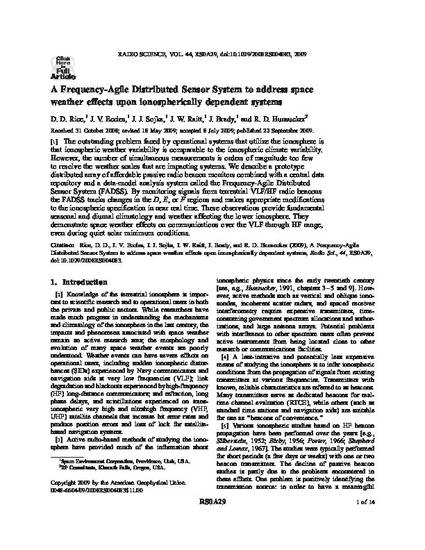
The outstanding problem faced by operational systems that utilize the ionosphere is that ionospheric weather variability is comparable to the ionospheric climate variability. However, the number of simultaneous measurements is orders of magnitude too few to resolve the weather scales that are impacting systems. We describe a prototype distributed array of affordable passive radio beacon monitors combined with a central data repository and a data-model analysis system called the Frequency-Agile Distributed Sensor System (FADSS). By monitoring signals from terrestrial VLF/HF radio beacons the FADSS tracks changes in the D, E, or F regions and makes appropriate modifications to the ionospheric specification in near real time. These observations provide fundamental seasonal and diurnal climatology and weather affecting the lower ionosphere. They demonstrate space weather effects on communications over the VLF through HF range, even during quiet solar minimum conditions.
